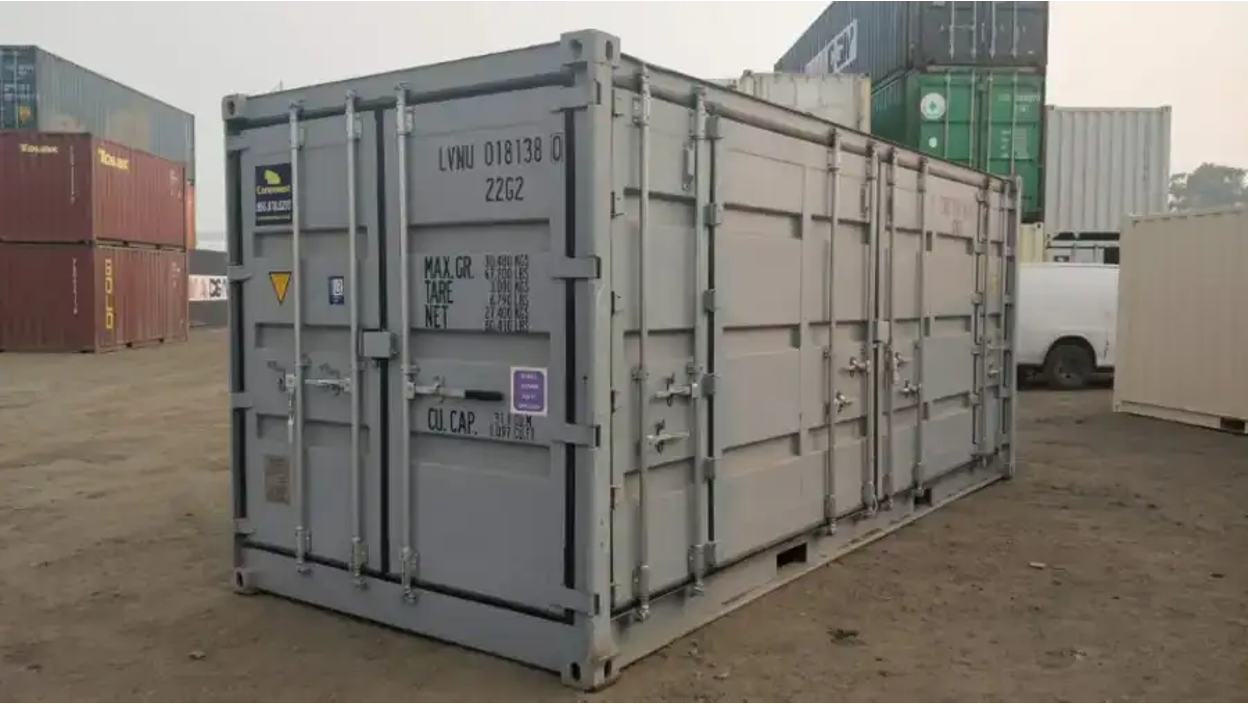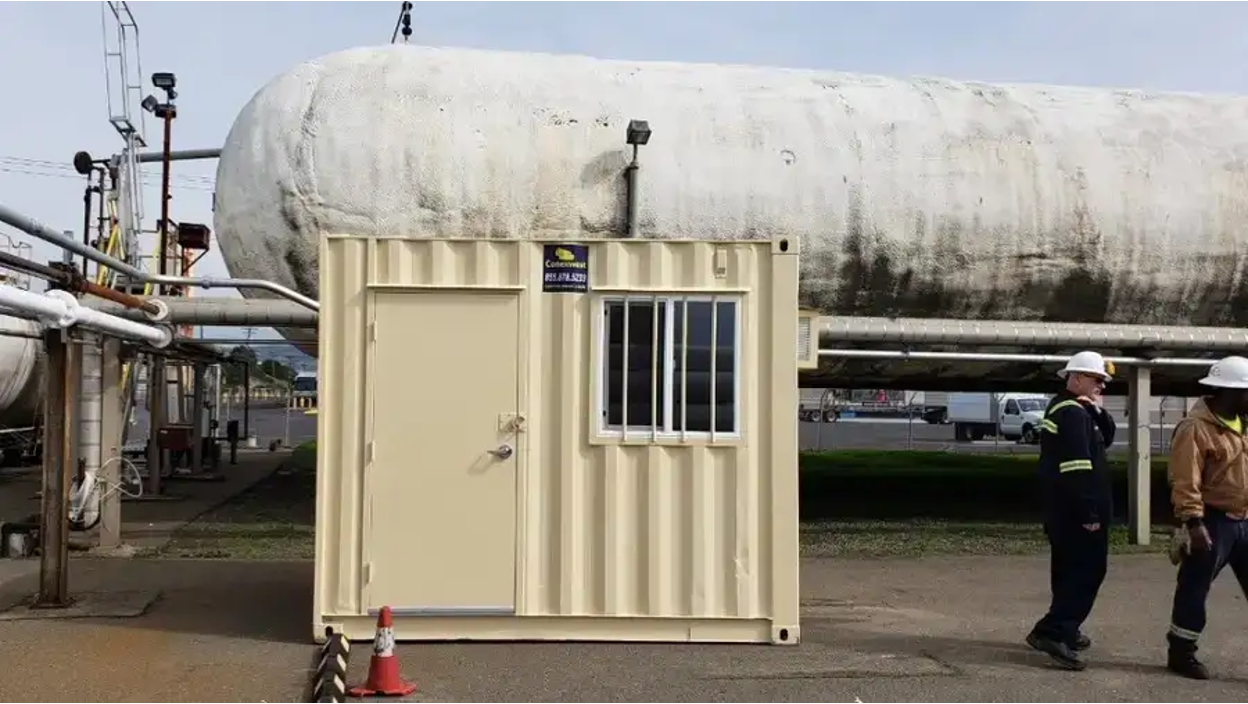Pennsylvania Shipping Container Zoning Laws, Permits & Building Code Requirements
Get a quotePennsylvania Shipping Container Zoning Law, Permit & Building Code Guide
Key Takeaways
- Shipping container homes are legal in Pennsylvania, but compliance with local zoning laws is essential.
- Permits are required, and the process can vary depending on the municipality.
- Costs for permits and compliance can vary, so budgeting is important.
- Check with local authorities and experienced suppliers for a smoother process.
- At Conexwest, we offer a complete solution for your shipping container needs which also helps you comply with Pennsylvania’s laws.
Shipping Container Zoning Laws, Permits, & Building Code Requirements In Pennsylvania
Legal Status
Shipping container homes are theoretically legal in Pennsylvania - as long as you follow local zoning and building codes. There’s no statewide ban, but every municipality has its own set of rules, so you’ll need to check those before you start building.
Zoning Laws
Zoning laws determine where you can place shipping containers and how you’re allowed to use them. Here’s the breakdown:
- Residential Zones: Restrictions are stricter here. Typically, containers are allowed only for temporary storage during construction or renovations.
- Commercial & Industrial Zones: These areas are much more container-friendly. You can often use them as permanent structures or for storage without much hassle.
Building Codes
Pennsylvania follows the International Residential Code (IRC) for one- and two-family homes. That means your container home must meet standards for structural safety, habitability, and more.
Permit Requirements
- Building Permits: Required for permanent installations. You’ll need to submit detailed plans that show how your project complies with local building codes.
- Zoning Permits: To make sure the container use matches local zoning rules.
- Inspections: Expect multiple inspections during the building process to check if everything meets the required standards.
Read More: Guide to Build a Shipping Container Houseboat
Examples from Various Municipalities in Pennsylvania
1. Conway Township:
- Containers are allowed as accessory structures in all zoning districts but need a temporary land use permit.
- They must stay in the side or rear yards without obstructing front views.
2. Yoe Borough
- Portable storage containers can stay on residential lots for up to 4 months in 2 years unless tied to active construction.
- A temporary zoning permit is required for containers staying over 30 days.
Conexwest, a leader in shipping and storage solutions based in Northern California, offers new, used, and refurbished containers from 10ft to 45ft, with fast delivery within 3–7 days and container fabrication options like adding shelves and locks. We serve over 10,000 customers nationwide, including prestigious clients like the U.S. Navy and Google. As an ISO 9001 and AWS-certified company, we ensure top quality and competitive pricing. |
Tips For Complying With Pennsylvania’s Regulations

Not complying with shipping container rules can put you in legal trouble.
1. Get Familiar with Local Rules
Start by figuring out the zoning classification of your property - residential, commercial, or mixed-use. This will help you know if shipping containers are even allowed. Also, double-check your lot size and make sure you’re sticking to setback requirements (how far the container needs to be from property lines).
2. Talk to Local Authorities
Set up a meeting with your local zoning office to walk through your plans and understand what’s expected. Ask specific questions about permits - what you’ll need, the steps to apply, and the documents to prepare. Getting guidance upfront saves time and stress later!
3. Have a Detailed Plan in Place
Make detailed drawings that cover everything - dimensions, site layout, elevations, and how you’ll meet local building codes. Show that your project ticks all the boxes, including structural safety standards from the International Building Code or Residential Code. The clearer your plans, the smoother the process.
4. Focus on Structural Strength
Choose high-quality containers that are weather-resistant and built to handle the conditions in your area. Also, don’t skip on the foundation - like concrete or asphalt - as a solid base is key for safety and stability.
5. Prioritize Safety
Make sure your container won’t be used to store anything hazardous - most places have strict rules against this. Plus, position the container carefully so it doesn’t block roads, pathways, or utilities.
Choose Conexwest For Your Shipping Container Needs

Apart from standard containers, we even have specialized containers like mobile office and hazmat containers.
We are a trusted name in the shipping container industry, specializing in providing new, used, and refurbished containers with sizes ranging from 10ft to 45ft. However, selling containers is just our starting point - we also provide rentals, customizations, and delivery to give you a one-stop solution for all your shipping container needs.
Why Choose Conexwest
- A Container for Every Need: Our massive inventory of new and used containers means you’ll always find the perfect match for your project.
- Custom Containers: Add shelving, secure locks, or other features to make your container work exactly how you want it to.
Read More: How Much Does a Shipping Container Poolside Cabana Cost - Fast and Reliable Delivery: Need your container ASAP? We deliver within 3–7 days so you can get started without delay.
- Support You Can Count On: From picking the right container to answering your questions post-delivery, our expert team is with you every step of the way.
Frequently Asked Questions (FAQs)
- What are the first steps to building a shipping container home?
The first step is to consult your local zoning office to understand the regulations and restrictions that apply to shipping containers in your municipality. This will inform your planning and design process.
- Are there size restrictions for shipping containers?
While there are no universal size restrictions, the size of the container must comply with local building codes and zoning regulations. Standard sizes include 20ft and 40ft containers but always verify with local authorities.
- Can I use a shipping container for storage on my property?
Yes, you can use a shipping container for storage, but you may need to obtain a permit depending on your municipality's regulations. Some areas may have restrictions on the duration or location of storage containers.
- What should I consider regarding the placement of the container?
When placing a shipping container, consider setback requirements which dictate how far the container must be from property lines or existing structures. Additionally, check that it does not obstruct rights-of-way or create safety hazards.
- Are your containers weatherproof and secure?
Yes. Our containers are built to withstand harsh weather conditions and are designed to be secure, featuring high-quality locking mechanisms.
